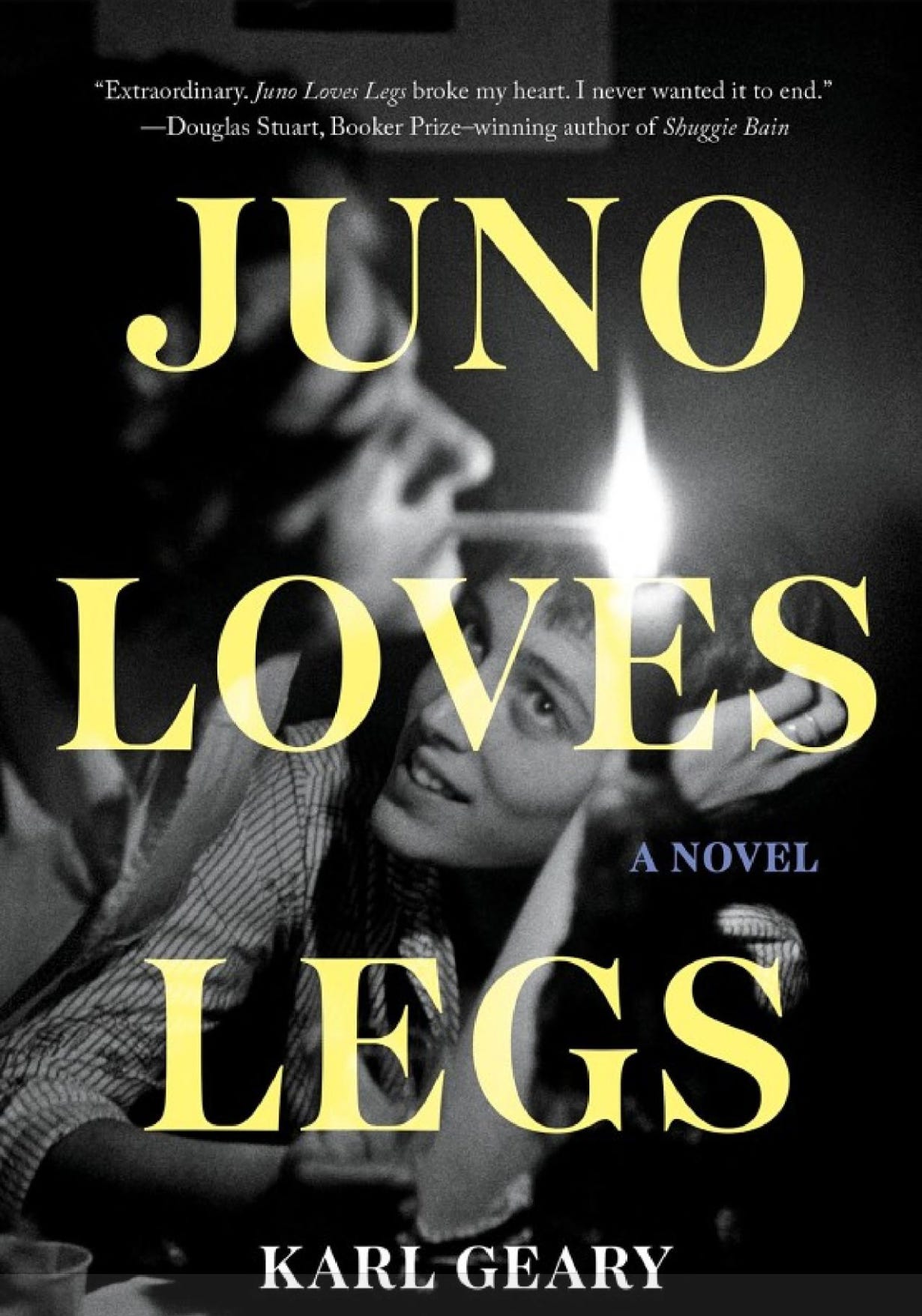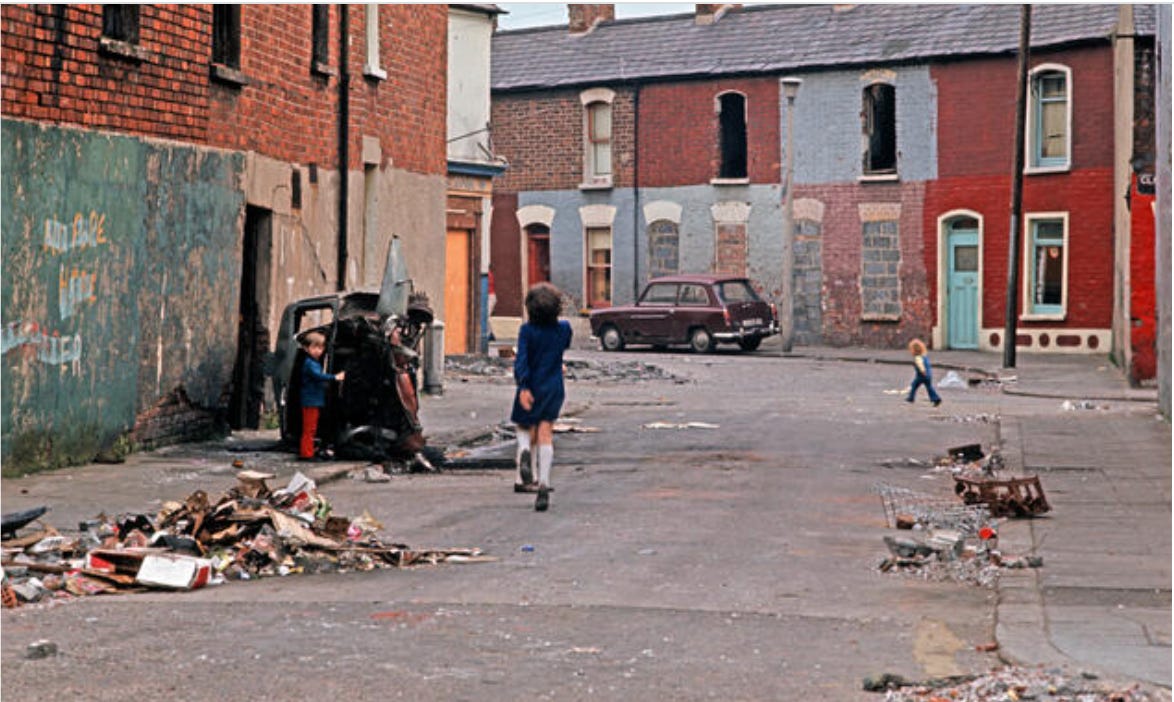There should be more novels about friendship, I think—especially the kind in which two misfits meet and connect, making life suddenly, blessedly bearable. Juno Loves Legs, the story of Juno and her friend Sean (whom she nicknames Legs), is exactly that kind of novel.
Their friendship begins in their Catholic school classroom, in Dublin: “Sister stood close behind Sean McGuire, her navy material falling in long shapeless folds, only her face and hands exposed like some prisoner…[She] held a wooden ruler like a warning, knocking it against her open hand.
“Sister says: ‘You are horrible and sinful children.’
“We say: ‘Yes Sister.’”
Sister calls Sean to the front of the class, berates him for not having done his homework. “Hasn’t Sean a pretty face?” Sister says. “The face of a lovely girl, hasn’t he?” She pulls his hair into pigtails, ties them with pink and yellow ribbons, and makes him stand on a chair, turning, so that the class can get the full effect. Then sends him to stand in the corner, where “…his shoulders continued to shake long after Sister had seemingly forgotten about him.”
“I saw how he tried to make himself invisible,” Juno observes. “I noticed everything and found that it was Sean I noticed most.”
Juno does notice everything, which is in great part the joy and heartbreak of this book. Later, on the playground, she watches a gang of bullies attack Sean, watches him fight back—and jumps into the fray, kicking the worst of them in the balls. And there they stand, the two of them, the center of a circle of kids taunting them.
Juno: “I felt something pressed into my hand, a warm, lively thing, and I saw how Sean had wrapped his fingers around mine, binding himself to me.”
I felt them connect.
Years of teaching high school taught me that all too often the “bad” kids—the ones who simply refused to become what school was determined to make them—were smart, spirited, funny, insightful, and highly principled. They were incapable of being anyone but themselves. But their insights were unwelcome to teachers and administrators; their principles disrespected. I saw this, too, in a series of writing workshops I did with incarcerated girls.
Some kids who go astray in high school eventually make a place in the world that accommodates their true selves. But too many—especially ones who are poor—end up with sad, unfulfilling lives.
So much potential lost to us!
Friendship is everything to kids whose families and communities discard them. So it is with Juno and Legs, whose instant friendship is their oasis in Catholic, working-class Dublin. It’s the eighties, a time of political, social, and religious change, in an Ireland still reeling from the Troubles.
Juno lives with her mam, her dad, and the ghost of her older sister Derry, who was banished from home upon becoming pregnant. Her mam is a gifted seamstress—the constant whir of her Singer sewing machine is the backdrop to Juno’s life. Mam is often stiffed by her well-to-do clients, but too fearful to try to collect what’s owed to her. Juno’s dad is a drunk; sometimes Juno goes to school with bruises or a black eye delivered by the hands of her father.
Legs’ dad is long gone, his mother so obsessed with germs that she covers the furniture with plastic. Repulsed by her son’s girlish ways, she regularly tries to beat them out of him with a scrubbing brush dipped in bicarbonate of soda and vinegar. This approach fails, of course, so she connives with the parish priest—who visits often—to send Legs to a boarding school to finish the job.
The novel is not all grim, though. Juno and Legs “get” each other, and there’s no greater gift than that. One of the pleasures of the book is the pure joy they find in each other, not to mention their hilarious (though dark) give and take as they navigate the world. A librarian (ah, librarians!) befriends Juno, offering not only books she thinks Juno will like, but a safe place to curl up and read them. There are transcendent moments, glimpses of of life beyond adolescence.
Still, you may be wondering, “Why in the world would I want to read this book?”
If you like only happy books, you probably don’t.
But if you like books that open a door to a world that is nothing like your own, where you can live for a while, grasp something you never understood before, and gain compassion for people whose real lives play out there, I’m pretty sure you’ll fall in love with Juno Loves Legs as I did.






Loved this.
Juno and Legs sounds like a book I might enjoy as a retired high school teacher of Irish descent:-). Thanks for this review of the novel.